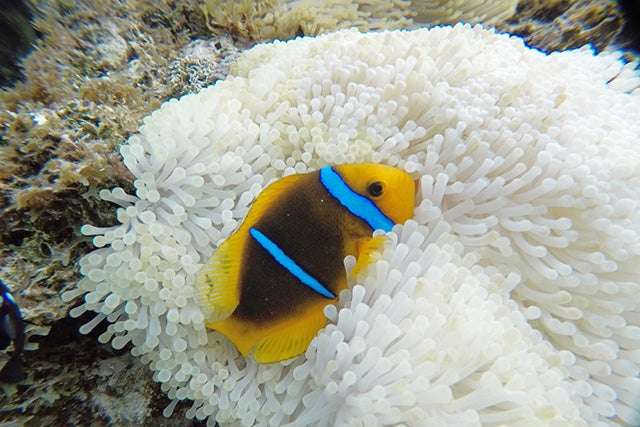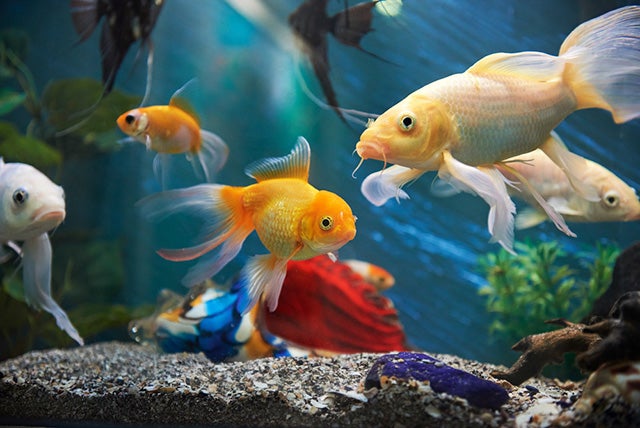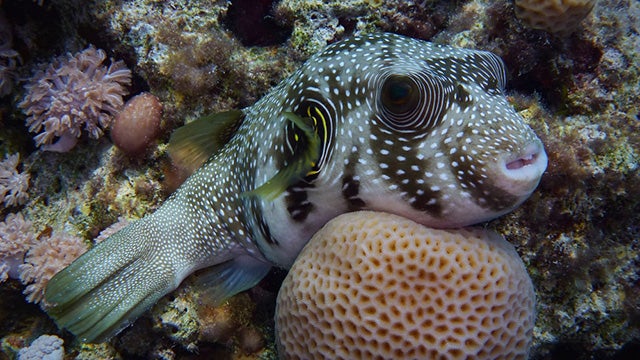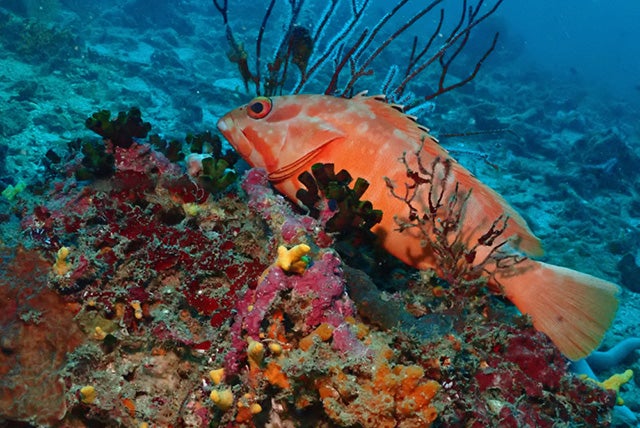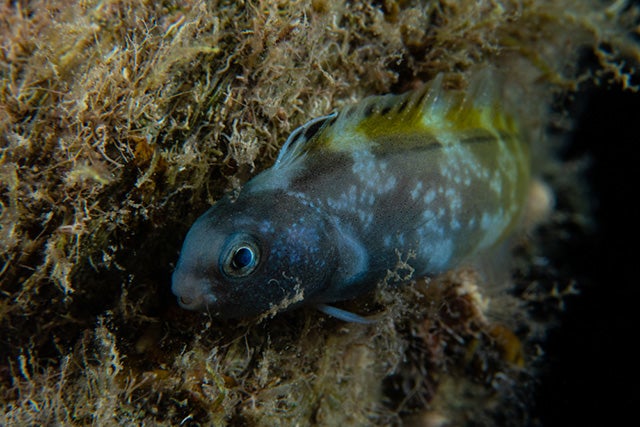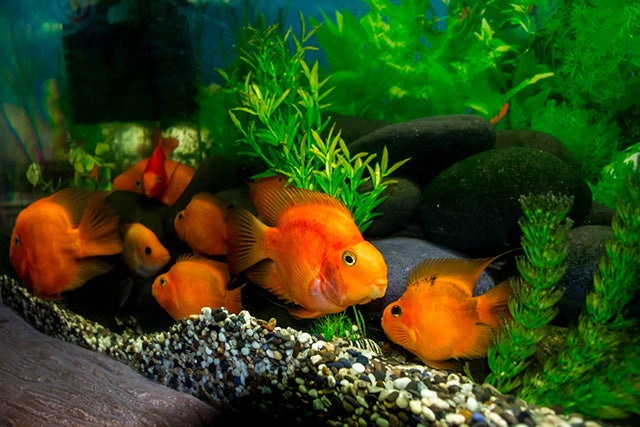This was the question my very curious kindergartener asked after we installed a very live, very active fish in his bedroom.
Of course, my first thought was he had caught the things belly-up already, but luckily our fishy was simply resting on the bottom of the tank and came to life once we poured in some food.
Which then meant I needed to explain how fish sleep, and despite a background in wildlife ecology, I also didn’t know. My quick research did yield some interesting information, so if you are pondering how fish sleep, we have the answers for you below.
Do Fish Sleep?
Although there is a debate whether a fish is asleep or simply resting, there is no doubt that fish enter into a state of nonmovement in order to regenerate just like every other animal does. The fact that some fish are less active by day and more by night, and vice versa, supports the theory that fish are in a state of deep sleep during this period of rest.
Their breathing is also noticeably slower as seen by less gill movement, and some fish don’t even respond to nearby movement. These are common amongst other animals, including humans, as well.
It has been observed that fish that care for their young after hatching often avoid sleeping to stay alert and watchful as the fry grow. These young fish also stay awake during this time, most likely because their small size makes them more vulnerable to predators. Most fish don’t begin to sleep until 5 or 6 months of age either when they have matured into their full size.
Also, fish actively migrating also don’t stop to rest, perhaps using stored energy from feedings to get to where they are going.
Where Do Fish Sleep?
Fish sleep in different places depending on the type of underwater environment they live within. Some fish sleep floating just under the water’s surface, while others may wedge themselves between coral and rocks, rest gently upon the bottom of their habitat, slide into burrows or nests, or even cover themselves in sand or mud.
How Do You Know When a Fish is Asleep?
Since fish don’t have eyelids, you won’t have the same telltale sign of a sleeping or resting animal: closed eyes. But, you will notice them less active and still, or may even not be able to find them at all depending on whether they have a place they like to hide and sleep within.
If you can observe them, you’ll also see their gills moving slower than normal, and they may not even respond to sound or light changes. You will probably also notice that your fish will sleep around the same times everyday, just like humans!
Some fish have to move to keep breathing properly, like sharks, and it is believed that a certain part of the brain takes over to allow the fish to sleep while their body continues to move.
How Do Fish Know When to Go to Bed?
Just like humans and other animals, fish cycle through the circadian rhythm, a pattern of behaviors that drive physiological functions – including sleep. Depending on the species and the environment, they have a time to sleep, and a time to be active.
Some of this behavior is triggered by the day and night cycle. Nocturnal fish usually find a dark area to rest in during the day as well before waking up to hunt at night.
Even some fish that live in the dark show signs of patterned sleep and wakeful behaviors despite having slower responses due to the lack of daylight.
Can Fish Dream?
Although this is not something that has ever been studied in detail, other marine animals have been observed showing signs of dreaming so it is possible fish also dream while they rest. In fact, studies on freshwater zebrafish have found what is believed to be a type of REM sleep while they rest.
REM (rapid eye movement) is the sleep stage within which mammals brain activity is at its highest, and when dreams occur.
I wonder what they dream about? Other fish? A good meal? A vacation to the other side of the lake?
Wrapping it Up
Fish sleep and many purposely seek out safe and comfortable spots to do so to avoid becoming prey while they rest, or drifting from their habitat. It is even possible that they enter into a state of sleep that supports dreaming.
Patterned circadian rhythms help fish recognize when it is time to eat, move, and sleep – much like humans. Although these patterns change by species and environment, if you catch your goldfish relaxing in a state of rest, be sure to let them be so they can catch their zzz’s.
Photo credit: O’KHAEN/Shutterstock; Przemek Iciak/Shutterstock;
Tunatura/Shutterstock; Andrey Muravin/Shutterstock;
Osama Abuassonon/Shutterstock;finchfocus/Shutterstock;
PixieMe/Shutterstock

